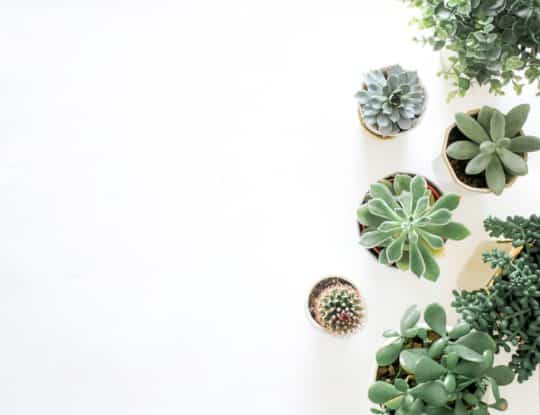Spend $50 and get FREE SHIPPING
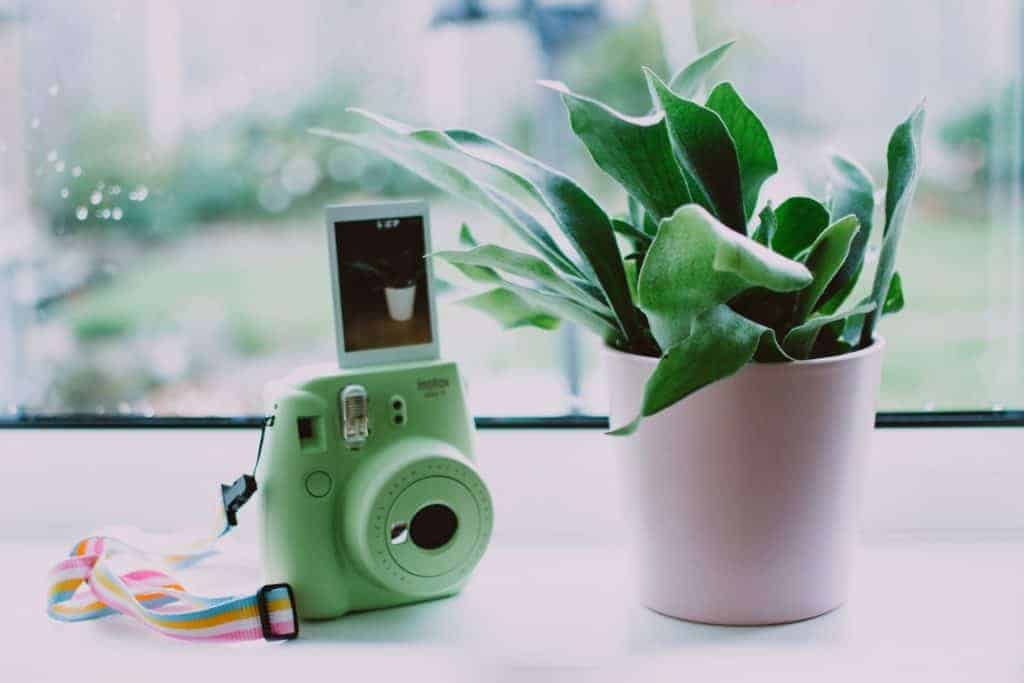
It seems as if being a #plantmom has officially become cooler than being a #catmom. We get it, plants are pretty awesome, and growing them in your home actually has a lot more benefits than simply looking cute.
Having greenery in your home can not only improve air quality indoors but can also boost mental health and be a useful tool for sticking to a budget. The range of plants that thrive in an indoor environment is huge and includes everything from edible herbs to detoxifying vines. So if you’re considering getting some houseplants, here are five reasons we think you should go for it (and 5 plants every hope should have)!
1. Plants produce oxygen
As we learned in high school biology, plants breathe, gain their green color, and produce oxygen through a process called photosynthesis. Plants take in carbon dioxide and combine it with energy from sunlight to generate necessary nutrients for themselves, creating oxygen as a byproduct. Keeping a few hearty plants in your home will keep your space feeling fresh and airy, with plenty of clean air to breathe. For people with pulmonary issues like asthma it may make an especially important difference to have a few plants at home. For the rest of us – since each plant is a little CO2 eating machine – there’s the added bonus of fighting climate change.
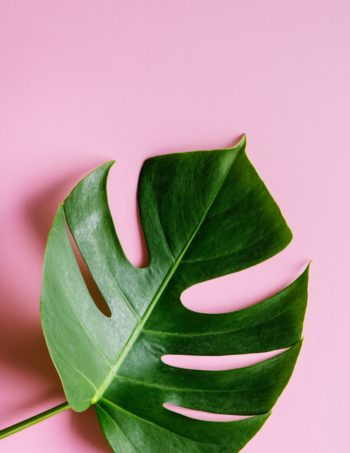
We recommend starting with a snake plant (also known as sansevieria and mother-in-law’s-tongue). These sturdy leaves grow easily, require very little water and sunlight, and are prized for the copious amounts of oxygen they give off. They like to open up their plant pores to release oxygen at night, so these are great for the bedroom!
2. Plants are the original air purifiers
Houses and apartment buildings are prone to a number of potentially harmful chemicals and compounds that float through the air. Chemicals like benzene, formaldehyde, ammonia, and VOCs are commonly found in indoor spaces. Furniture, paint, household cleaners and insulation can all give off these dangerous chemicals. Stagnant indoor spaces (all of you New Yorkers with tiny, windowless apartments) can cause a buildup of these compounds and create an environment fittingly termed “sick building syndrome.”
NASA recommends a number of houseplants for dealing with sick building syndrome, including English Ivy.English ivy and other vines like pothos are excellent, fast-growing and low-maintenance plants that are effective at cleaning and filtering the air in your home. English ivy pulls in benzene, formaldehyde, and ammonia from the air, turning them into food for the plant and putting out only oxygen and nontoxic byproducts in return.
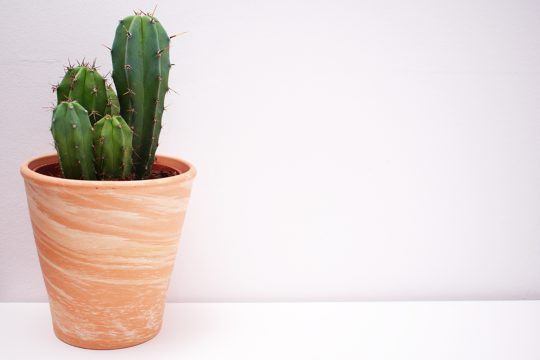
3. Plants = climate control
Another byproduct of photosynthesis is water. During the process of breathing in CO2, plants create humid environments for themselves by collecting moisture on the underside of leaves. The air around household plants will also pick up some of that humidity. This can be extremely helpful in the summertime in keeping your indoor space nice and cool, potentially allowing you to turn off the AC for a few hours. The humidity created by plants can also help those who suffer from allergies because the humid air keeps dust and toxins from floating around.
If you suffer from itchy eyes, a dry throat, or excessively dry skin, we suggest you add a tropical plant to your home such as the areca palm (or butterfly palm). Just one of these palms at 6 feet tall can fill the air with up to 1 liter of water in 24 hours.
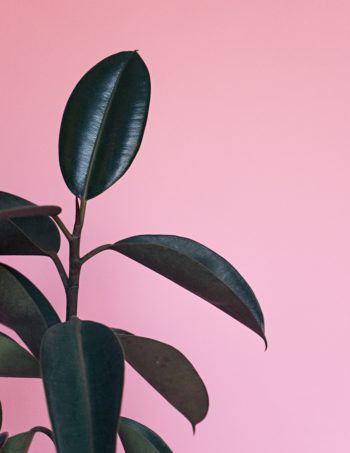
4. Caring for plants encourages self-care
In a world where we spend so much time on social media, staring at screens, and interacting through the internet it’s easy to find oneself becoming anxious, unable to focus, and unhappy in life. Scientists have told us that slowing down and taking time away from the computer is healthy and necessary in order to combat those nasty side effects. Now, we know it’s not always easy to do as we’re told – after all, getting outside, slowing down, and being more mindful are all habits that take time and practice. It’s helpful to have a living thing that’s reliant upon you to take care of it as it will force you to take breaks and just breathe. A daily or weekly watering regimen and the time it takes to repot, prune, and care for houseplants is a great way to slow down and focus on something that isn’t a screen. Spending time caring for and touching plants is also a meditative activity, and is suspected to have significant effects on mental health. This study found that putting plants in an office environment helped keep employees healthy, happy, and more focused.
Aloe plants are perfect for your desk as they require a moderate amount of care and grow into happy shapes that are compelling and fun to look at. Not only are these plants gorgeous, they’re also great at filtering the air and providing sunburn relief.
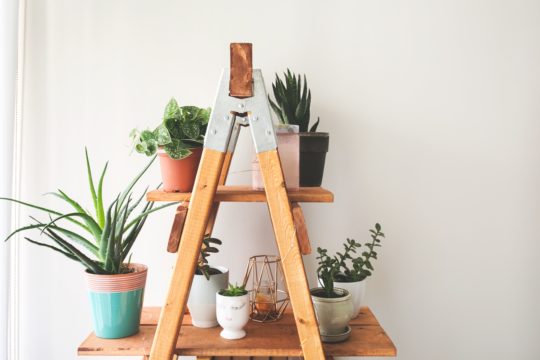
5. They’re edible!
Sometimes it’s difficult to get your daily dose of greens. Living in a city that is hustling and bustling prevents us from getting to the grocery store as often as we’d like, and even then it’s not always easy to find a grocer that carries fresh produce at reasonable prices. Growing a few edible plants can help you take control over a portion of your diet. Herbs like basil, cilantro, sage, thyme, and mint are fast growers that thrive in an indoor environment. Plant a huge swath of them in a large box (or on a green wall) or just a few in a small pot by the window. Either way, you’ll be harvesting and feasting on fresh, homegrown greens within a few weeks. Keeping some edible plants at home is also a great way to save time running back and forth to the store, prevent food waste by only picking what you need (rather than buying a whole bunch that inevitably goes half brown before you can eat it), and save money on groceries.
Basil is our go-to indoor herb because the more you eat it the more it grows! As leaves begin to reach their full size, pinch them off at the stem and throw them on top of pizza or blend them up into a herbaceous, creamy pesto sauce. The basil will put out new leaves where the old ones have been harvested.
